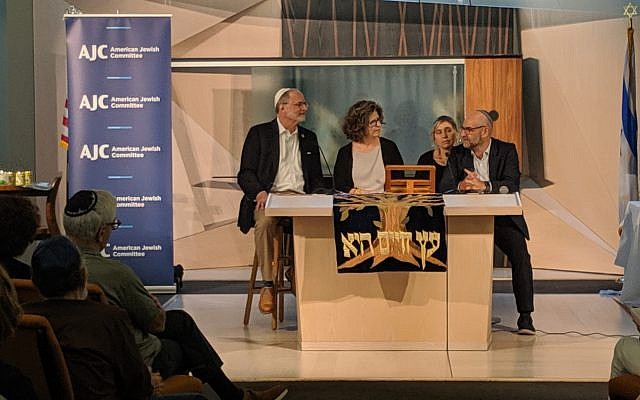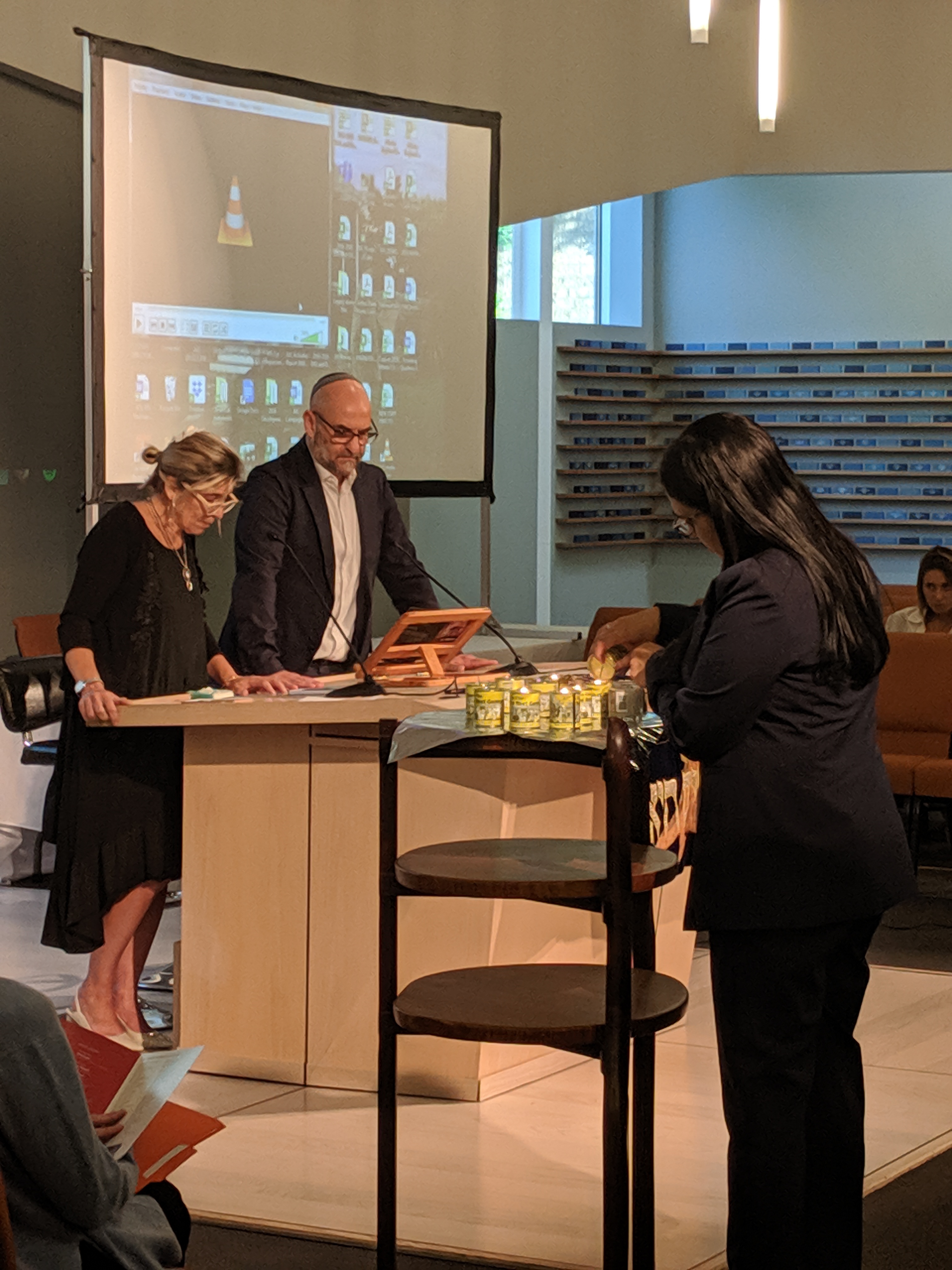Concrete Pillars Replaced Menorot at Jewish Buildings
Congregation Or Hadash hosted a memorial service remembering the more than 100 victims of the AMIA bombing, 25 years after the tragedy.

The bombing that reduced to rubble the central Jewish organization in Buenos Aires 25 years ago changed innumerable lives, the Jewish community there and the entire country of Argentina. At a memorial Sunday sponsored by the American Jewish Committee in Atlanta and hosted by Congregation Or Hadash, some of those changes were highlighted for the more than 100 people who attended.
The congregation’s Rabbis Analia Bortz and Mario Karpuj had just returned to Argentina in July 1994 after finishing their rabbinic studies in Israel days before the tragedy. They recounted their personal losses and experiences in the weeks following the bombing. One of the 85 people killed in the attack was Rabbi Bortz’s best friend, Suzi Kleiman. More than 300 people – Jewish and non-Jewish – were injured in the devastation. “And every human being was a whole story,” Bortz said.
But the changes in people’s lives reverberated far beyond those directly impacted. The two COH rabbis told how the bombing affected their decision to leave the country, first moving to Chile, and then to the United States. They also explained how the event brought Argentina together, with even non-Jews declaring in rallies that they stood as Jews as well. “The entire country was injured,” Karpuj said.
Although Bortz said that anti-Semitism in the country decreased after the explosion – which followed the horrific bombing at the Israeli Embassy in Buenos Aires two years earlier – the Jewish community was forced to make significant changes. Whereas before the 1994 bombing of the Asociacion Mutual Israelita Argentina Jewish institutions proudly reflected the religion by displaying either Stars of David or menorot, afterwards these symbols were replaced by concrete pillars that prevented parking out front. The bombing that had destroyed the AMIA resulted from the detonation of more than 600 pounds of explosives that were packed into a Renault van in front of the building.

Jorge Lopez Menardi, Consul General of Argentina, which co-sponsored the evening, spoke at the beginning of Sunday’s memorial ceremony along with Anat Sultan-Dadon, the new Consul General of Israel in Atlanta.
The somber evening that concluded the holiday of Tisha B’Av included the lighting of candles while the names of the 85 murdered were read by the rabbis. A final candle represented the hope that was embodied in the last word of the ceremony’s title, “Memory and Accountability.” A short film narrated by the 25-year-old daughter of one of those killed focused on the desire and need for justice to be served against the terrorists thought to be financed and led by Iran and Hezbollah.
Dina Siegel Vann, AJC director for Latino and Latin American Affairs, explained how the Argentine government has still not brought the perpetrators of the bombing to justice.
In a panel moderated by former U.S. Ambassador to Venezuela Charles Shapiro, and including the two rabbis, Siegel Vann updated those gathered about
Argentina’s latest efforts to bring accountability for the terrorist act. “As long as no one is brought to justice, we feel this can happen again,” she said. “There’s no reason it can’t happen again. Impunity brings the possibility of future attacks.”



comments